Empowering you to focus on patients by streamlining multimodal health data analysis
Don’t let the growing complexity of health data analysis reduce the time dedicated to patient care. The SOPHiA DDM™ Platform helps with optimizing your research and analysis workflows, empowering you to break data silos with the streamlined and intuitive integration of multiple modalities – from omics to clinical and biological data. By transforming longitudinal data into insights, you can identify multimodal signatures, discover relapse and treatment response patterns, and expand your research without losing sight of what matters most.
An ever-growing range of healthcare data modalities
Outlook and approach:
Advance towards data-driven clinical decision-making to gain a deeper understanding of disease and treatment responses by visualizing and cohorting patient data in an all-inclusive way. Combining AI/machine learning and proprietary algorithms, and leveraging on a global network of 780+ Healthcare Institutions, the SOPHiA DDM™ Platform is designed to integrate data from multiple sources and modalities to:
- Uncover precise and thorough healthcare insights and broaden your understanding of the fundamental causes of specific diseases and treatment outcomes
- Amplify analytics results by combining diverse health data modalities, revealing meaningful patterns and trends
- Synthesize multimodal data to optimize cross-disciplinary discussions and drive efficient, sustainable healthcare delivery
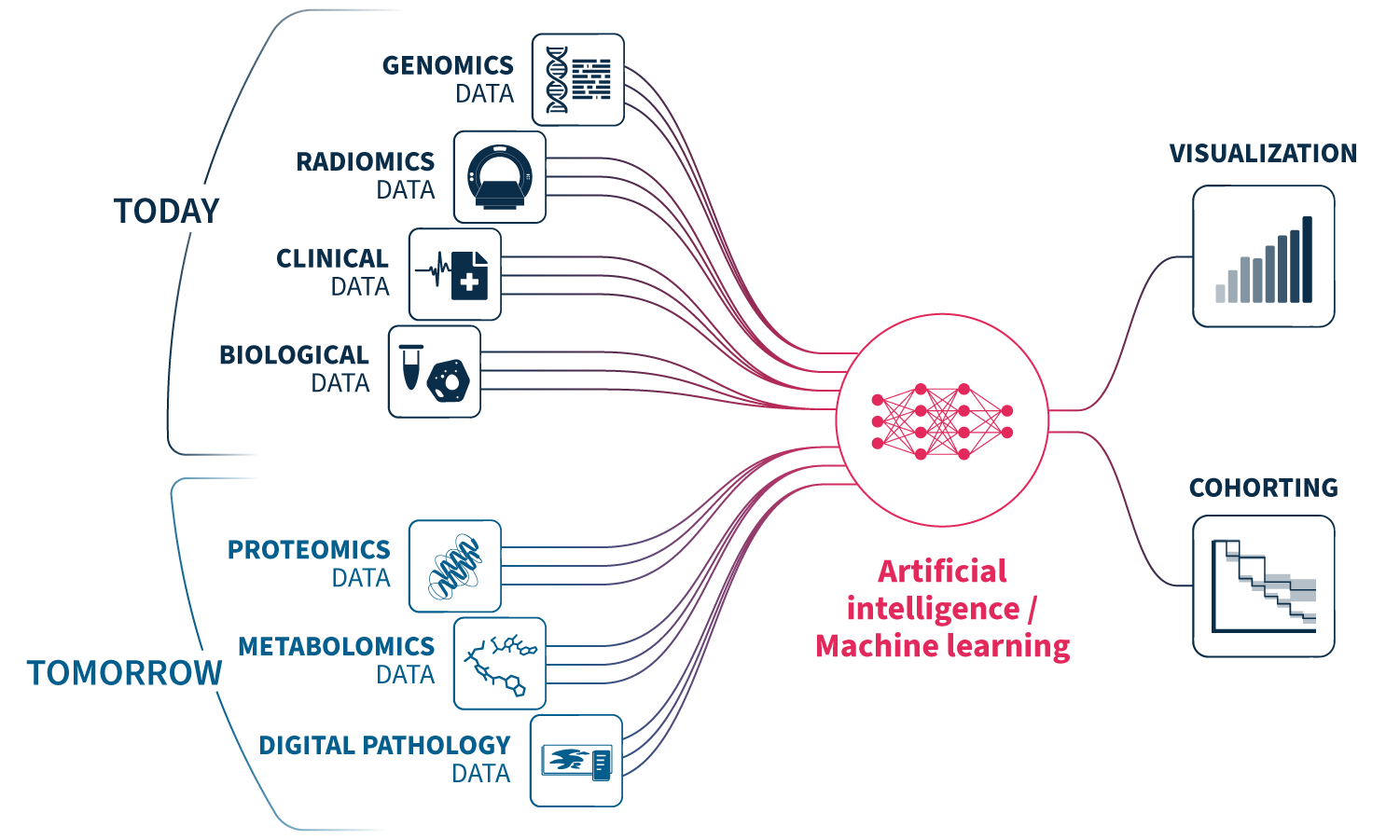
Learn how healthcare data analytics is
amplifying clinical research

Lung Cancer

Brain Cancer

Breast Cancer

Kidney Cancer
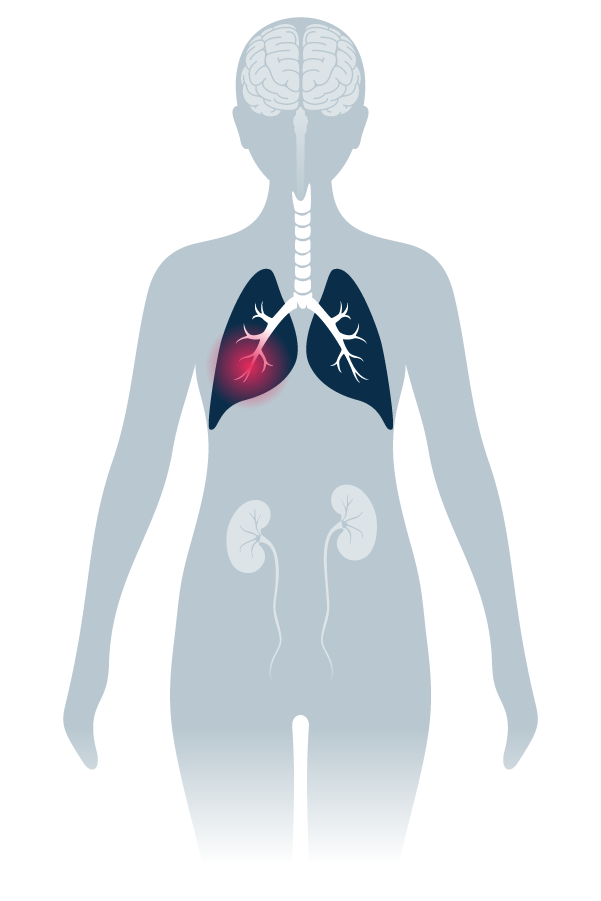
Over the last 20 years, targeted compounds have been proven effective for non-small cell lung cancer (NSCLC patients). Recent scientific breakthrough has made immunotherapies a new pillar of cancer care.1
Yet, further research is needed to identify the patients most likely to benefit from these treatments.
In collaboration with academic partners, ongoing efforts aim to identify and test multimodal signatures to assess prognosis and predictive biomarkers in NSCLC patients treated with an immunotherapy regimen.
Learn more about our study in stage IIIA NSCLC:
Read the abstract →
Learn more about our ongoing flagship study in stage IV NSCLC:
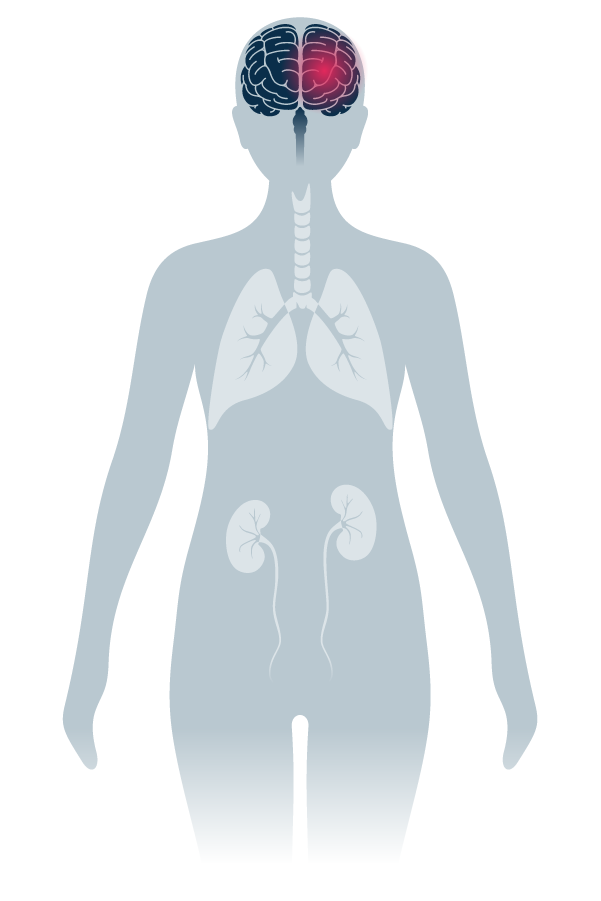
Clinical trials investigating meningioma therapies typically use the potentially restrictive endpoint of progression-free survival at 6 months (PFS6).
There is an urgent need to assess new treatment efficacy, considering tumor growth and characteristics.
In collaboration with academic partners, we investigated a statistical model demonstrating that 3D Volume Growth Rate (3DVGR) can complement PFS6 and provide a more comprehensive understanding of treatment response patterns.
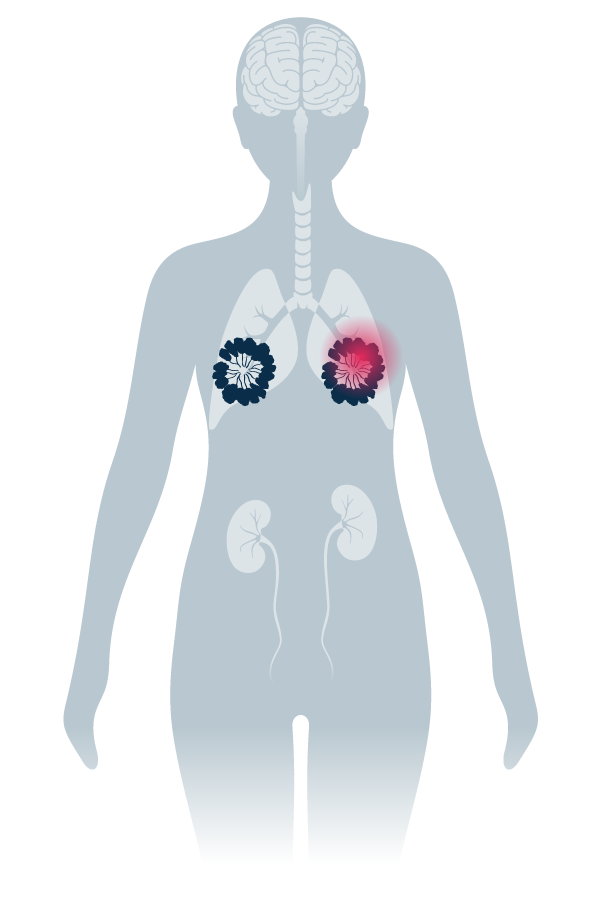
Poly-chemotherapy is the standard treatment for early triple negative breast cancer (TNBC), typically administered prior to surgery to assess tumor sensitivity.2
Patients with residual disease after treatment have a higher risk of recurrence compared to those without. Differentiated follow-up treatment plans would benefit these patients, yet, more research is needed to establish robust prognosis biomarkers.
In collaboration with academic partners, we applied machine learning to baseline multimodal data to predict pathological complete response (pCR) status and identify patients who might benefit from additional treatments.
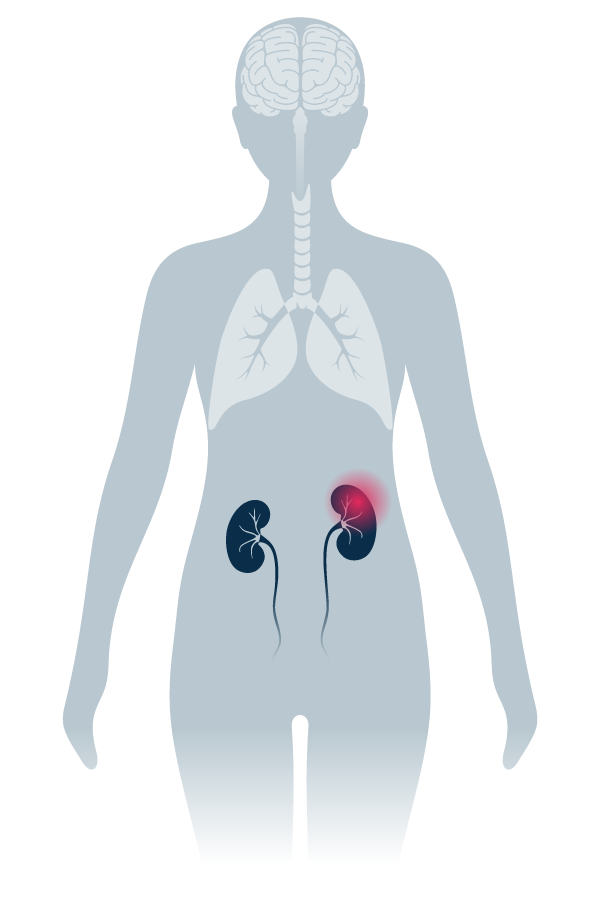
Knowing individuals’ risk of tumor progression/upstaging can guide treatment decisions, enabling selection of the strategy with the best chance of treating the kidney cancer while minimizing side effects and maximizing quality of life. Research is needed to develop and test such models.
In collaboration with leading academic institutions in the UroCCR network, we developed machine learning-based, contemporary, clinically relevant models to predict kidney cancer upstaging before surgery and recurrence after surgery.
What’s next?
For updates on ongoing research in the following indications, keep an eye on this space:
Neuro-endothelial cancer, Head and neck cancer, Adrenal tumors and Colorectal cancer.
The new generation SOPHiA DDM™ Platform is now live!
The revamped interface, new features, and cutting-edge capabilities are set to further accelerate precision medicine workflows, bringing us another step closer to democratizing data-driven medicine.


Introducing SOPHiA UNITY, a global network of best-in-class healthcare institutions contributing to high-quality multimodal oncology research to support data-driven medicine
Join the collective intelligence network for multimodal data research
Discover the future of longitudinal patient data exploration
Join the forefront of healthcare innovation with SOPHiA CarePath™, our forthcoming solution for longitudinal patient data exploration. With SOPHiA CarePath™ you will be able to:
Visualize
- Get a comprehensive longitudinal view of patient data across different modalities
Cohort
- Compare patients or groups of patients with others in the network
- Build tailored research cohorts using advanced filtering features and visualize aggregated data and statistics
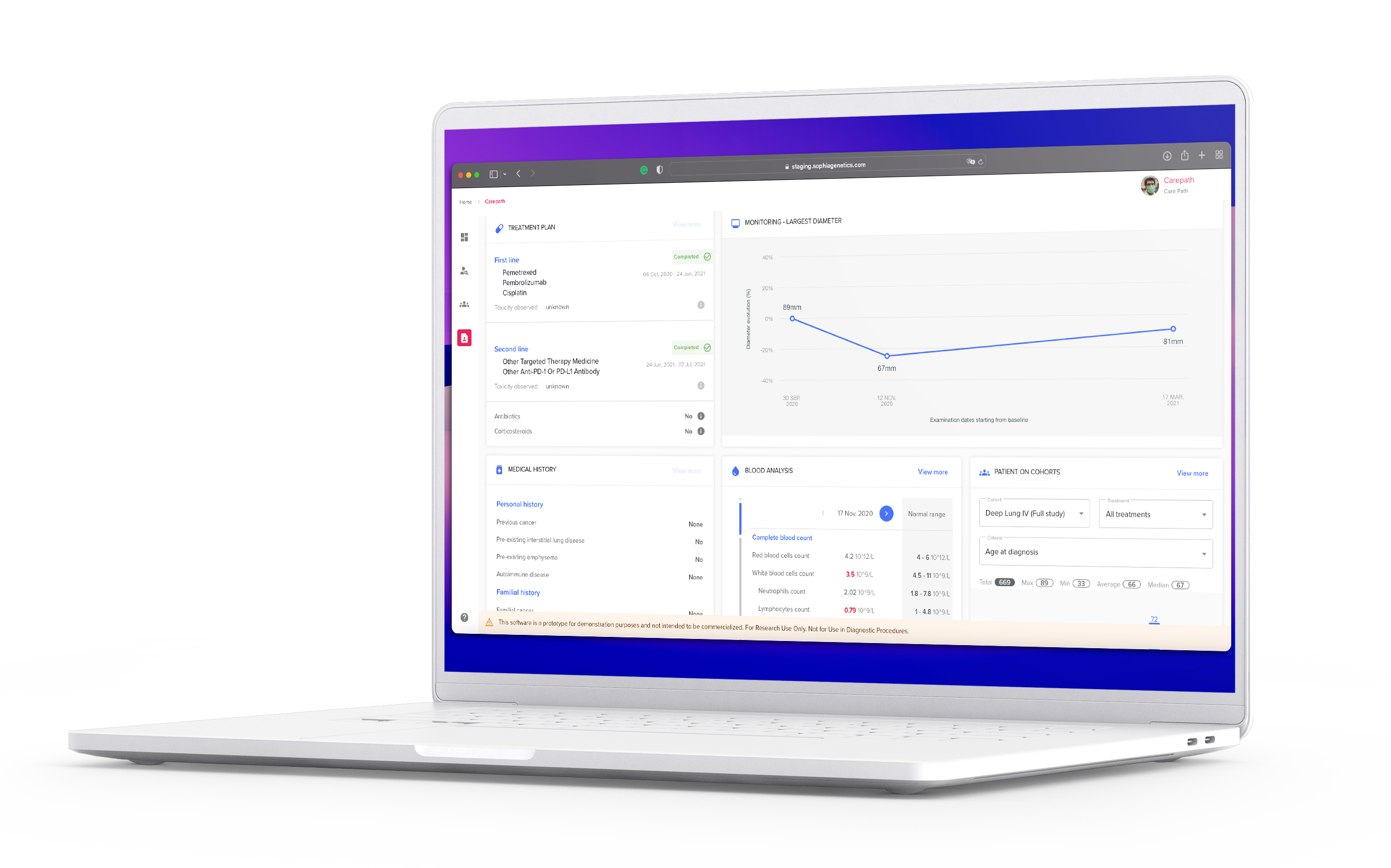
Resources
Peer reviewed publications
Related blogs
Request a demo!
Get in touch with us.
Our client services team is on hand to answer any questions or schedule your live demo.
Disclaimer
Product in development – Technology and concepts in development. May not be available for sale.
References
1.Kruger, S., Ilmer, M., Kobold, S. et al. J Exp Clin Cancer Res. 2019. 38(1):268. doi: 10.1186/s13046-019-1266-0
2. Tarantino, P., Corti, C., Schmid, P., et al. NPJ Breast Cancer. 2022. 8(1):23. doi: 10.1038/s41523-022-00386-1
3. Hamilton ZA, Capitanio U, Pruthi D, et al. Urology 2020. 138:60–8. doi: 10.1016/j.urology.2019.11.036